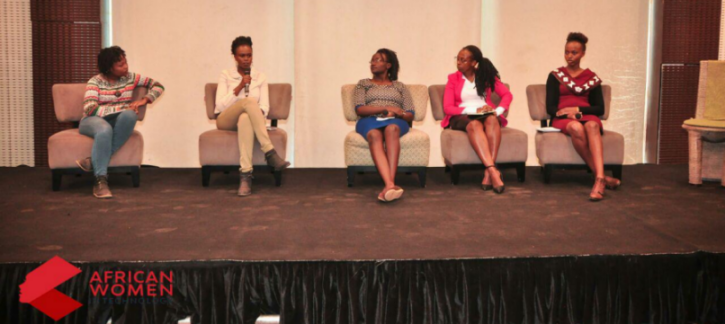The 3rd installation of the African Women in Technology Conference rightly themed, Awaken The Techazon Within was held between the 19 & 20th July in Nairobi. As an invited panelist speakers, I joined a group of other panelists to explore blockchain technology and its possible implementations in Kenya and Africa as a whole.

As a recently popularized industry, demystifying blockchain technology is one of my favorite things to do. In the 40 minute long discussion, we covered a wide range of topics including:
- The difference between blockchain & distributed ledger technology
- Creating a blockchain network
- Biggest hindrance to blockchain adoption in Africa
- How to leverage blockchain & DLT to build solutions for Africa
- Top predictions for the evolution of blockchain
In this post, I'll briefly outline my outlook for all this topics for those who couldn't make it to the conference.
Blockchain & Distributed Ledger Technologies
For newcomers understanding the difference between blockchain and distributed ledger technology (DLT) can be difficult to navigate. So lets simplify it - every every blockchain is a DLT but not every DLT is a blockchain. As a topic at the AWIT conference, attendees were intrigued to learn a major contributing factor to the differences between blockchain and DLT is the additional features available on a blockchain.
While distributed ledger technology offers a way to store data over various distributed nodes to avoid critical system errors caused by centralized points of failure - this is the only similar feature shared with a blockchain network. Blockchain networks are designed to accomodate several other features including smart contract, cryptocurrency and consensus capabilities.
Creating A Blockchain Network
The answer to whether anyone can create their own blockchain network is a definite yes, the real question is whether they should. As a core protocol developer, I'm approached ever so often by entrepreneurs who, while having just learned about the capabilities of blockchain technology, ask me to work with them to create a new blockhain based solution for their businesses.
This request always prompts the same response from me, Why do you need a blockchain for that? Yes, the capabilities within blockchain to transform various industries are huge but a common pitfall facing majority of blockchain projects is mistaking a protocol for a business solution. For businesses that can benefit from a distributed network system, here are several factors to consider while creating a blockchain network:
- Consensus Algorithm: This is responsible for securely updating the state of the data across a distributed network ensuring this a critical decision for protocol developers to make.
- Cyrptographic Key Management: This ensures transactions and other user data remain tamper-proof, authentic and secure, you'll need to integrate cryptographic hash functions like SHA256, Scrypt, ethash, x16 or more in your core network architecture.
- Smart Contracts: These are self-executing contracts that provide functions such as transferring money and receiving the product or service.
Hindrance To Blockchain Adoption In Africa
Before blockchain can be adopted in Africa and the global economy at large, several milestones need to be achieved. As industry participants we need to invest in more time and resources to educate regulatory bodies and consumers on the possiblities within blockchain to dramatically change the way we do business and offer solutions.
Some of the major hindrances to the adoption of blockchain include regulation uncertainity of cryptocurrency markets, complexities of blockchain integration, disrupting the culture of doing business and trust among users. Until we can successfully address some of these major challenges blockchain adoption will remain as small as it today.
Leveraging Blockchain To Build Solutions For Africa
As we've already observed, blockchain can be used to not only change business processes - it can be used to change the way the world works. These ways include bringing trust and transparency to supply chains, global trade, international trade and national food supply management.
Top Predictions For The Evolution of Blockchain
Without a doubt, blockchain will function as a major disruptive technology. We're yet to see which industries will endure majority of this disruption but we should expect to see several things as blockchain adoption continues to increase: (i) we should see governments embracing cryptoassets as legal tenders of exchange, (ii) decentralized digital identities (iii) world trade in a global blockchain economy (iv) a distributed and decentralized web.
Conclusion
Attending the African Women In Technology was a great experience, the opportunity to share my outlook on blockchain technology with eager attendees was amazing. If anything the wonderful QnA session that followed gave me great hope for the growth of blockchain implementation not just in Kenya but Africa as a whole.
Are you working on any great blockchain based solution for africa? I'd love to hear about it.